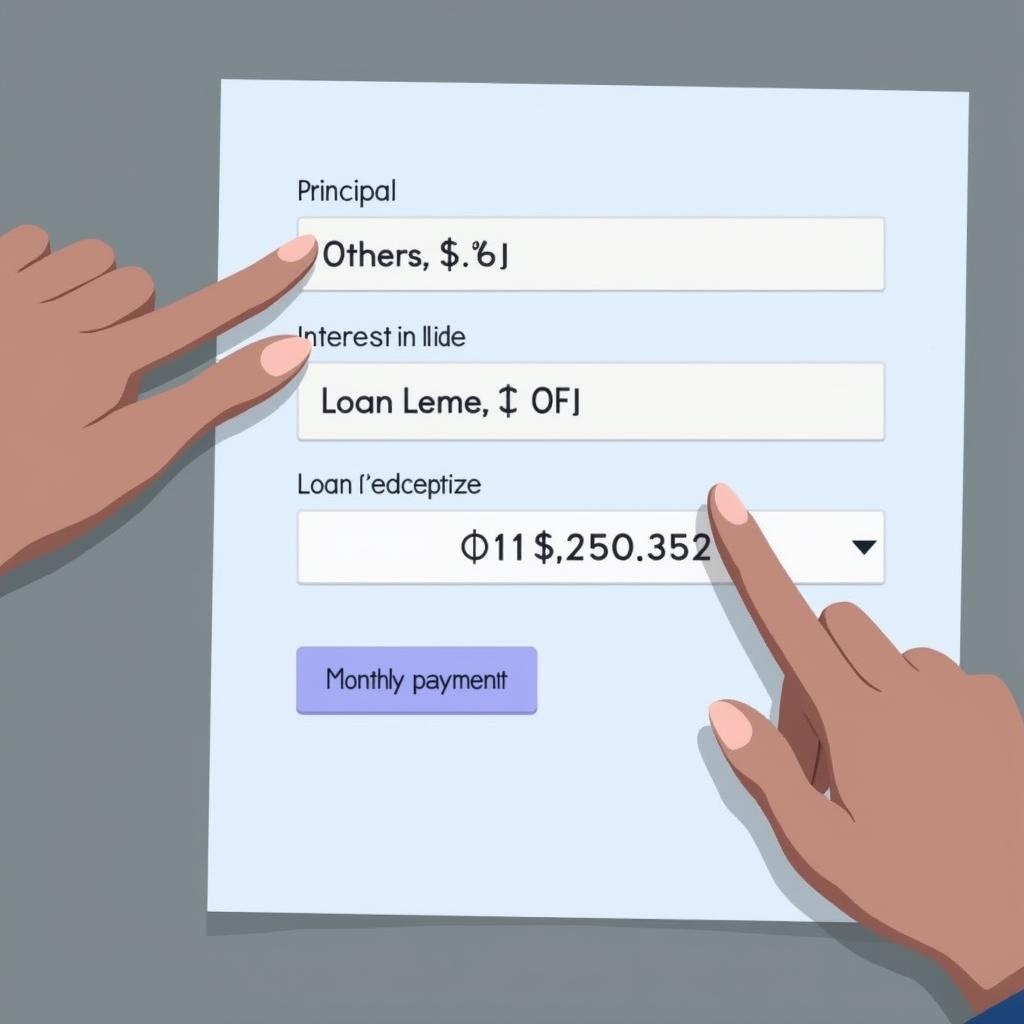Buying a car rarely involves just the sticker price. More often than not, financing comes into play, turning that seemingly simple purchase into a multi-faceted math problem. While it might not be calculus, understanding the figures behind car financing is crucial to making informed decisions and avoiding potential financial pitfalls. Let’s break down this equation and shed light on the numbers that drive car loans.
Decoding the Variables: Key Components of Car Financing
Before tackling the entire equation, it’s vital to understand the individual variables at play. These include:
1. Principal: This is the initial amount you borrow to purchase the car, essentially the car’s price minus any down payment you make.
2. Interest Rate (APR): This is the cost of borrowing money, expressed as a percentage. A lower APR translates to less money spent on interest over the loan’s lifetime. Factors like credit score, loan term, and economic conditions all influence your APR.
3. Loan Term: This refers to the duration of your loan, usually measured in months. Longer loan terms mean lower monthly payments but ultimately higher overall interest costs.
 Car Loan Calculation
Car Loan Calculation
Putting It Together: The Car Financing Formula
While there are convenient online calculators available, understanding the basic math helps you grasp how changes to one variable can impact the others. The core of car financing lies in the monthly payment calculation:
Monthly Payment = (Principal x Interest Rate/12) / (1-(1+Interest Rate/12)^-Loan Term)
Let’s illustrate with an example:
- Principal: $20,000
- Interest Rate (APR): 5%
- Loan Term: 60 months (5 years)
Using the formula, your monthly payment would be approximately $377.42.
Beyond the Basics: Hidden Factors and Additional Costs
The math problem of car financing doesn’t end with your monthly payment. Other elements can significantly influence the overall cost:
1. Down Payment: A larger down payment reduces your principal, leading to lower monthly payments and potentially a better interest rate.
2. Trade-In Value: If you’re trading in an old car, its value is subtracted from the new car’s price, impacting your principal amount.
3. Sales Tax, Registration, and Fees: These vary by location but can add thousands to your overall cost.
4. Loan Origination Fees: Some lenders charge a one-time fee to process your loan, typically a percentage of the loan amount.
5. Insurance Premiums: Your car insurance costs will likely change with a new vehicle, influencing your monthly budget.
Expert Insights
“Remember,” says Sarah Johnson, Senior Financial Advisor at Auto Finance Solutions, “focusing solely on the monthly payment can be misleading. It’s crucial to understand the total cost of the loan, including interest paid over its lifetime.”
Making Informed Decisions: Tips for Navigating Car Financing
-
Know Your Budget: Before stepping foot in a dealership, determine a comfortable monthly payment range considering your income, expenses, and savings goals.
-
Shop Around for Loan Rates: Don’t settle for the first loan offer. Explore options from banks, credit unions, and online lenders to secure the most competitive rates.
-
Negotiate the Car’s Price: Remember, the sticker price is rarely set in stone. Negotiating a lower price directly reduces your principal and overall loan amount.
 Car Financing Options
Car Financing Options
-
Consider a Shorter Loan Term: While longer terms offer lower monthly payments, opting for a shorter term can save you significant money on interest in the long run.
-
Factor in Total Cost of Ownership: Don’t forget about fuel costs, insurance premiums, maintenance, and potential repairs when evaluating affordability.
Conclusion: Solving for Affordability
Financing a car is a multi-faceted math problem that extends beyond simple addition and subtraction. By understanding the variables, hidden costs, and smart financing strategies, you can approach this significant purchase with confidence and avoid common financial traps. At AutoTipPro, we’re dedicated to empowering you with the knowledge to make informed car buying decisions. Contact us at +1 (641) 206-8880 or visit our office at 500 N St Mary’s St, San Antonio, TX 78205, United States, for personalized guidance on your car financing journey.
FAQs:
1. What is a good credit score for car financing?
A higher credit score generally qualifies you for lower interest rates, saving you money over the loan’s lifetime. Aim for a score above 670 for the best loan options.
2. How much should I put down on a car?
A larger down payment (20% or more) can secure lower interest rates and reduce your monthly payments.
3. Should I lease or finance a car?
Leasing offers lower monthly payments but limits mileage and customization. Financing provides ownership but higher upfront costs. The best option depends on your individual needs and financial situation.
4. Can I refinance my car loan later?
Yes, refinancing can be beneficial if interest rates drop or your credit score improves, potentially lowering your monthly payments and overall interest costs.
5. What are some common car financing mistakes to avoid?
Focus on the total loan cost, not just monthly payments. Shop around for the best interest rates. Avoid extending your loan term unnecessarily. Factor in all car ownership expenses.




Leave a Reply